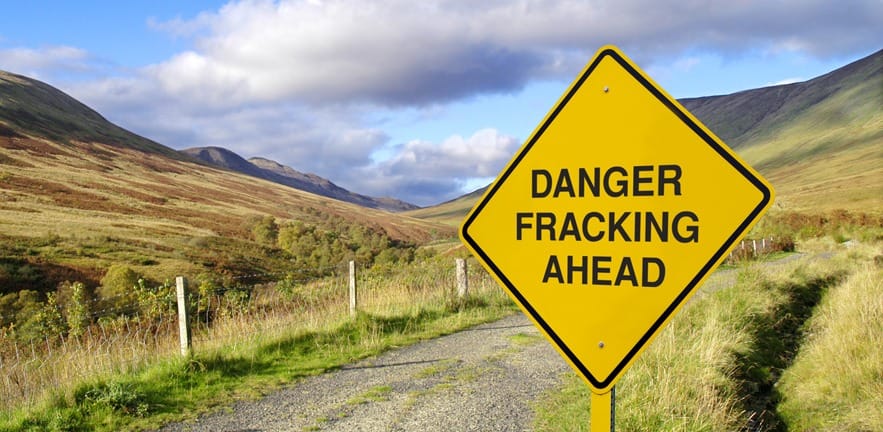Fracking seems to be prone to some bad press, but dig a bit deeper into the detail and you may find the argument in favour actually makes sense, at least in the short term. But what do the experts think?
Here Dr Chris Hope, Reader in Policy Modelling at Cambridge Judge Business School and a specialist advisor to the House of Lords Select Committee on Economic Affairs Inquiry into aspects of the economics of climate change, and Mark Linder, former Cambridge Judge Advisory Board member responsible for corporate development at independent UK energy company, Cuadrilla Resources, present their take on the environmental, social and economic impact.

It is unusual to find anyone arguing in favour of fracking on anything other than hard-nosed commercial grounds. The shale gas extraction technique hits the headlines every few weeks in many countries, usually for negative reasons. For example, in July 2014, there were well-publicised protests against its proposed use in Fermanagh, Northern Ireland; in both Shropshire and East Yorkshire in England; and in New South Wales, Australia. In the US, where fracking is now widespread, an ongoing, bitter war by media is underway between supporters and opponents.
The argument against fracking is that it is polluting, dangerous and provides only short term gains at the cost of long-term environmental damage. It increases carbon emissions, causes emissions of methane, a potent greenhouse gas, can damage countryside, could contaminate the water table – and has been blamed for minor earthquakes. A number of countries have banned it or imposed moratoriums upon its use, including France, Germany and South Africa.
But Mark Linder, who works in corporate development for UK energy company Cuadrilla Resources, believes you can make an ethical case for fracking:
The UK has a finite carbon budget and an ethical mindset. Some believe that for these reasons we should leave all newly discovered hydrocarbons underground,” he says. “But just because we have a carbon budget does not mean we cannot pursue the better of the hydrocarbons.
The largest use of gas in the UK is for heat; 84 per cent of households heat with gas, and that won’t change any time soon, he says. The positive impact is in power. Burning gas instead of coal to generate electricity is a positive environmental step, Linder argues, because gas emits less CO2 when used to generate power; and “coal is well known as an emitter of particulates and other substances which have health consequences”. Coal is still used for 41 per cent of global electricity generation and 39 per cent in the UK. By contrast, the US is now burning less coal, having increased its use of gas in part because it has increased the use of fracking.
As Linder notes, some American coal is exported to the UK for use in power generation. There is clearly a need for the UK to reduce its dependence upon coal, he argues, yet neither renewables nor nuclear power can meet the country’s power generation needs in its absence. Nor is importing gas, upon which the UK currently spends around £8bn per year, a figure set to rise to £15bn per year over the next 15 years, a good long term option, particularly as much of it is liquid natural gas imported from Qatar. “DECC’s chief scientist agrees that LNG processing is significantly more emissions-intensive than natural gas from shale,” Linder points out.
“We would suggest that much more natural gas from shale needs to be developed. If enough is developed we will have a better chance of leaving coal underground. The Intergovernmental Panel on Climate Change (IPCC) is manifestly supportive of shale gas as a short-term way to slow climate change; when extracted responsibly, shale gas in the medium term is better for the environment than coal or diesel oil.”
A quite different approach was outlined earlier this year by Chris Hope, Reader in Policy Modelling at Cambridge Judge Business School. Hope suggests that companies producing shale gas should pay for the long-term environmental damage caused by fracking, at the rate of a set amount for every tonne of CO2 or of methane emitted: the “social cost” of carbon and of methane.
Hope describes the PAGE09 integrated assessment model used to calculate these social costs, which, at the time he wrote his piece, could be estimated at just over US$100 per tonne of CO2 and just over US$1,500 per tonne of methane.
If the polluter was compelled to pay these costs, this would alter the cost/benefit analysis for possible fracking sites, as those where carbon and methane emissions could be minimised would present a much more attractive business case than other sites.
If we carry on along our present path, the social cost of carbon increases in real terms by a little more than two per cent per year, doubling in about 30 years,” Hope writes. “For methane, the cost [doubles] in about 20 years. So fewer shale gas prospects will loo attractive as time goes by.
If global greenhouse gas emissions were brought under control more quickly, the social costs of carbon and methane would not increase so fast over time, and might eventually decrease, meaning shale gas could play a greater role for longer.
This market-based approach, encouraging innovation to reduce environmental impact, while generating significant tax revenues, should be attractive to any government, Hope argues. In this scenario, the “polluter pays” principle delivers positive environmental, social and economic benefits.
However, Linder maintains that fracking for natural gas can still be a positive ethical choice. “Today Britain is 86 per cent dependent on fossil fuels. Besides what we need for heat, natural gas displaces coal for electricity, diesel for certain transportation, and improves the quality of air in our cities. Relative to today’s use of fossil fuels, natural gas is an ethical choice,” he asserts. It remains to be seen whether either of these very different ethical approaches will appeal to policymakers in the years ahead.

